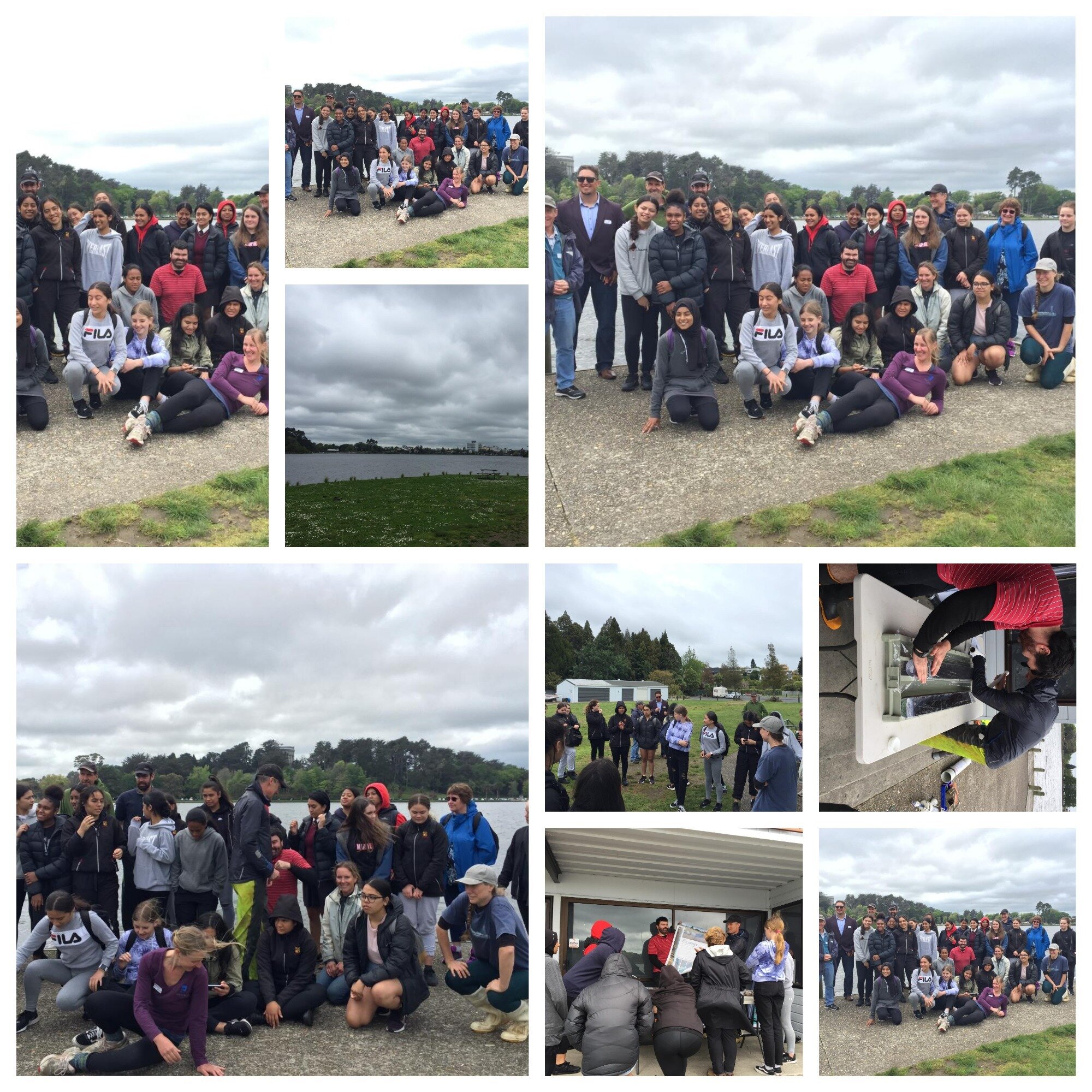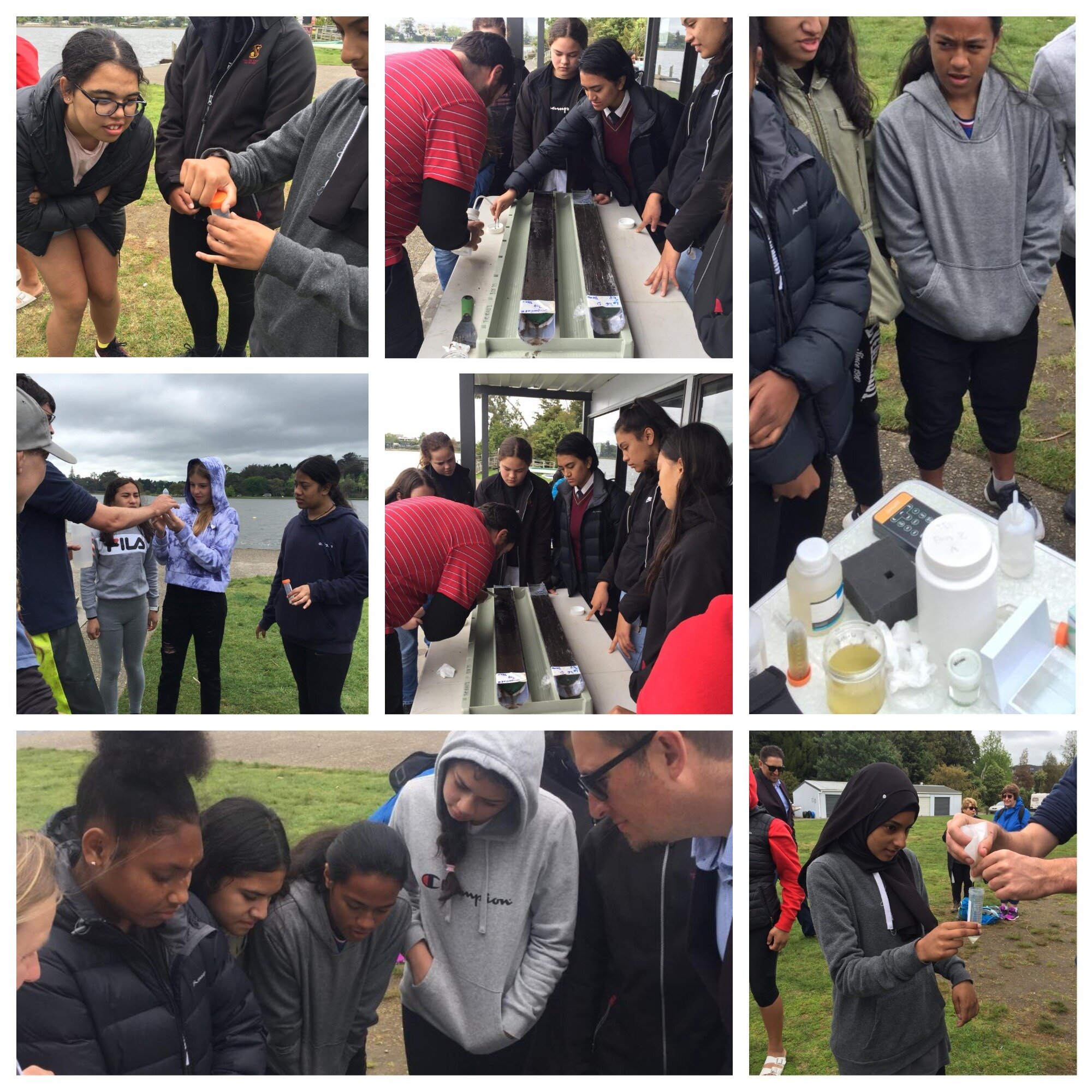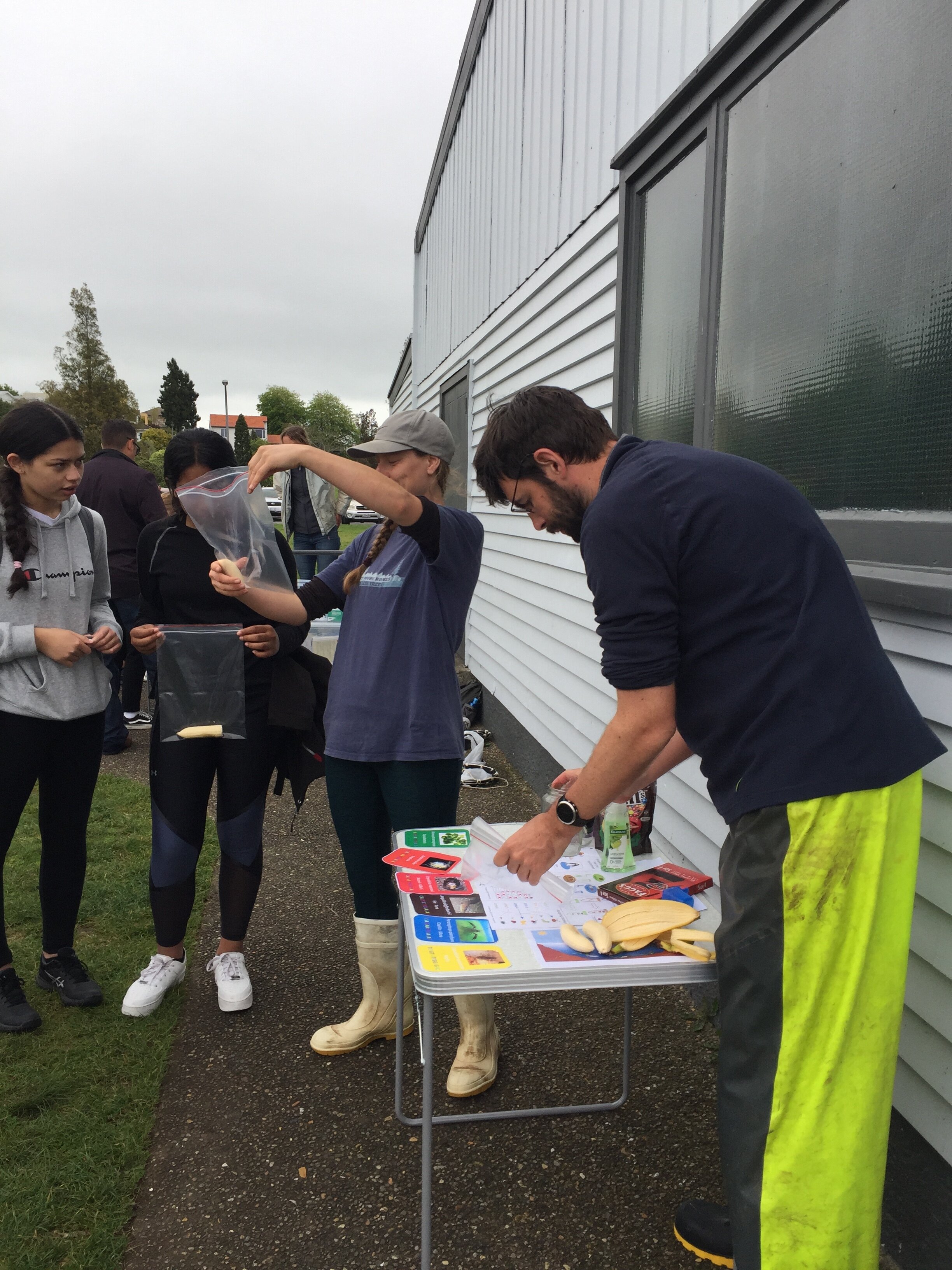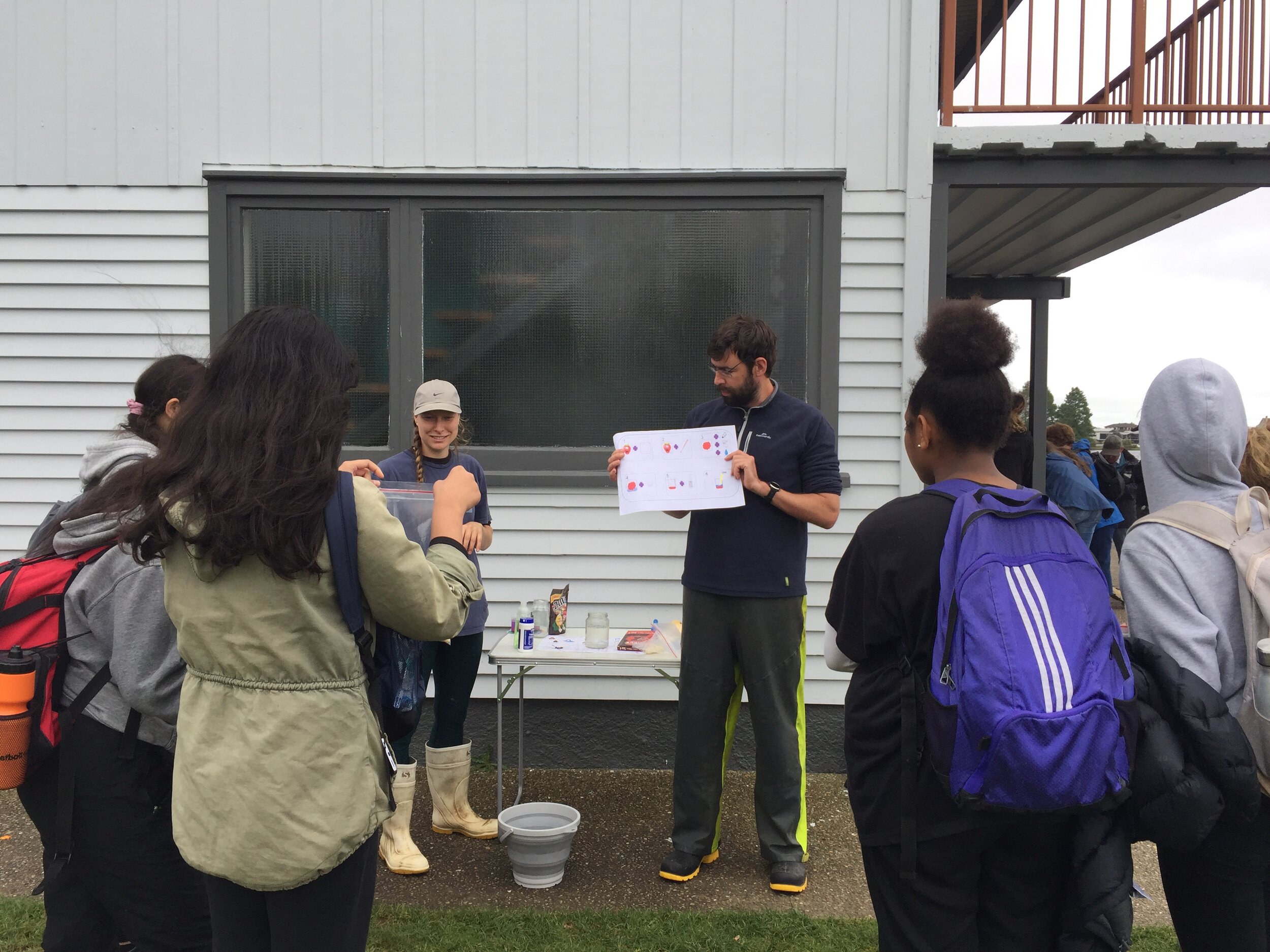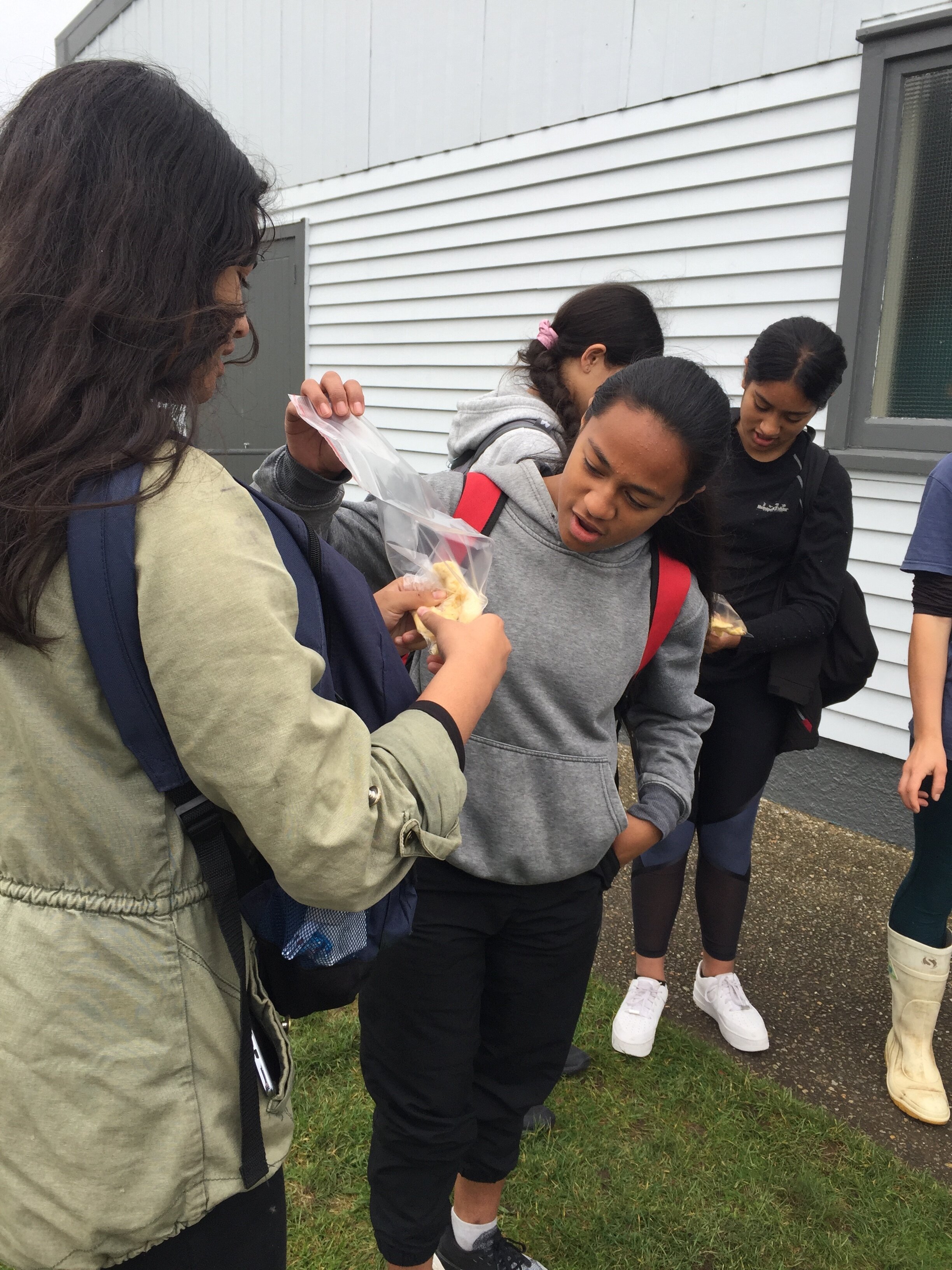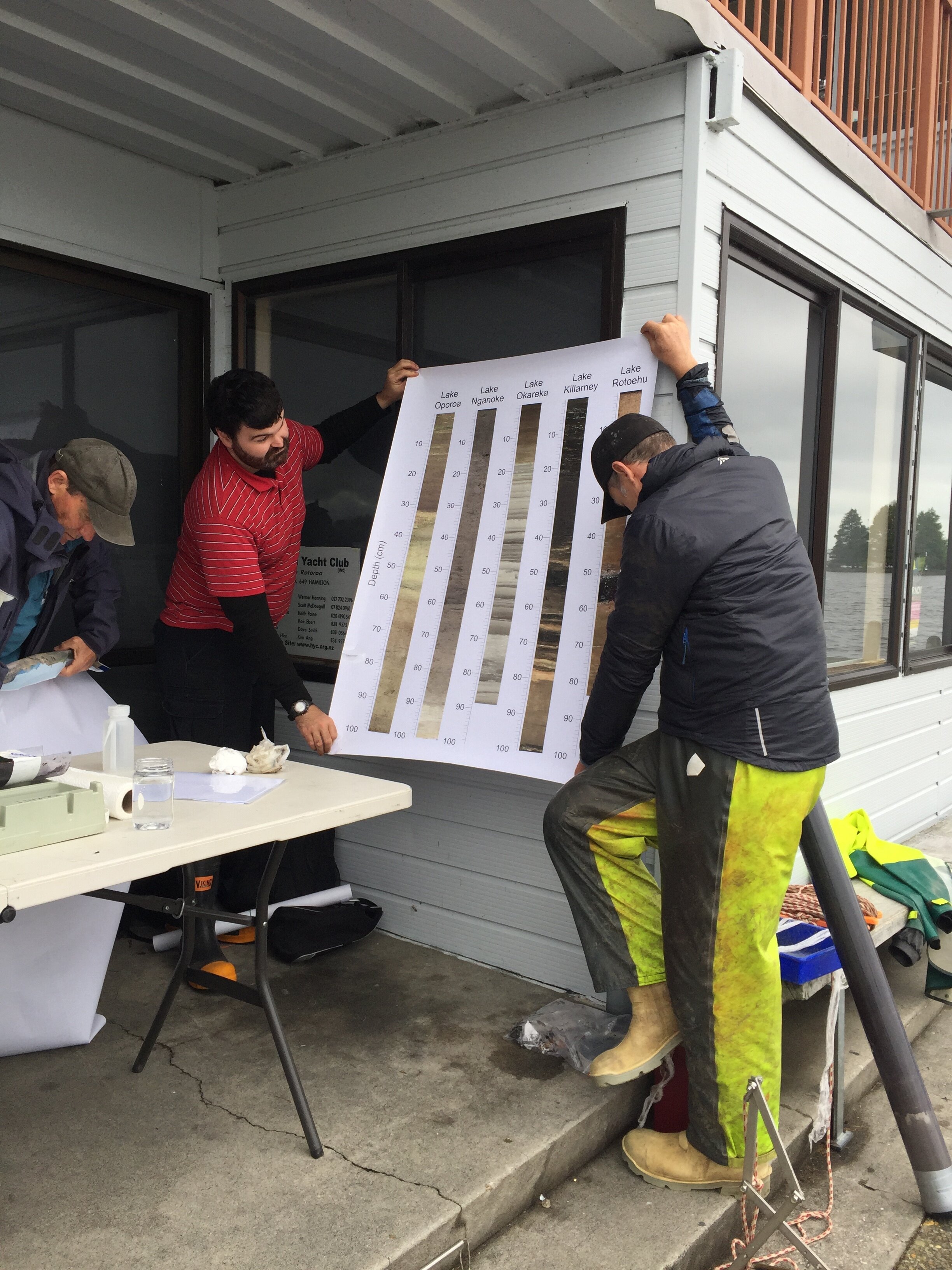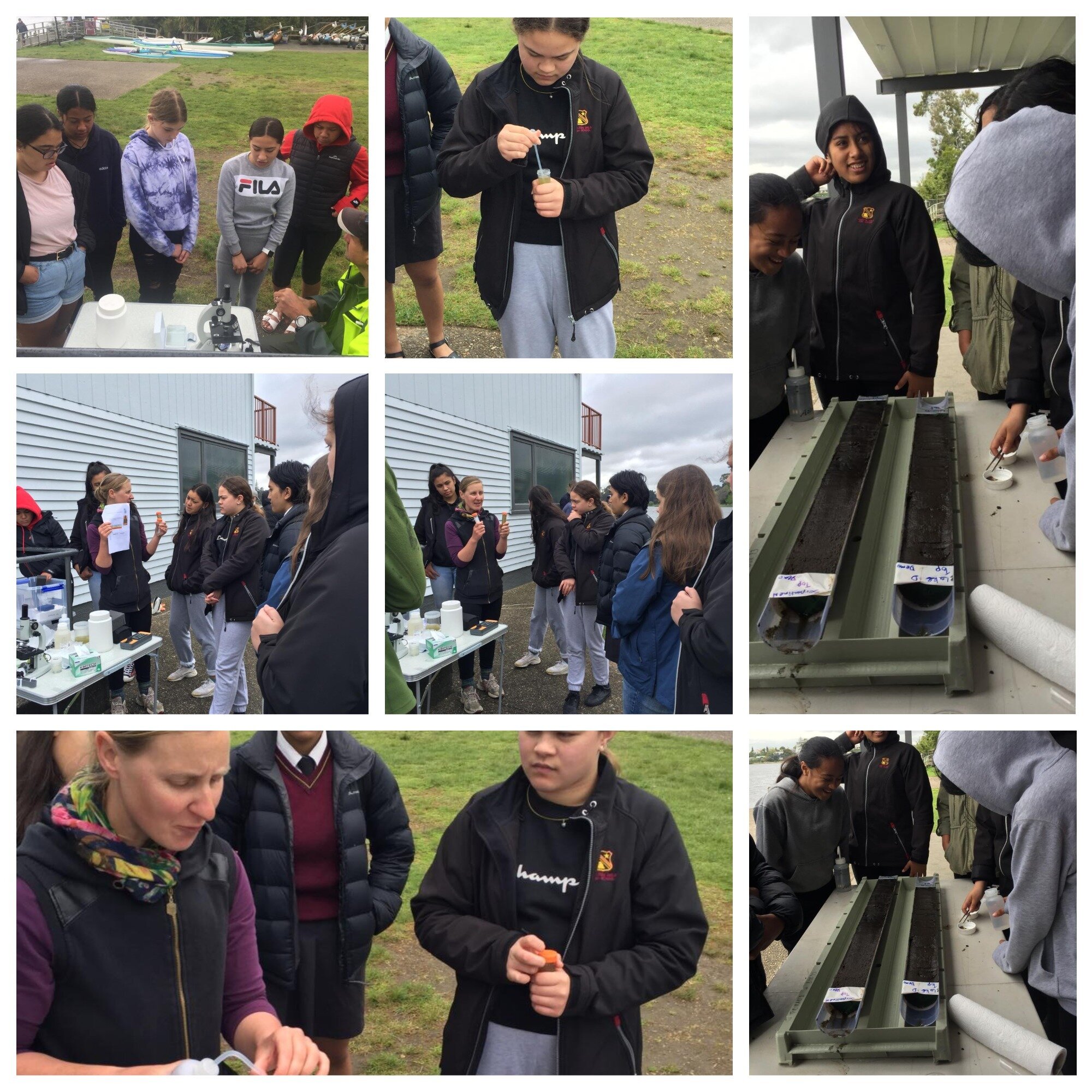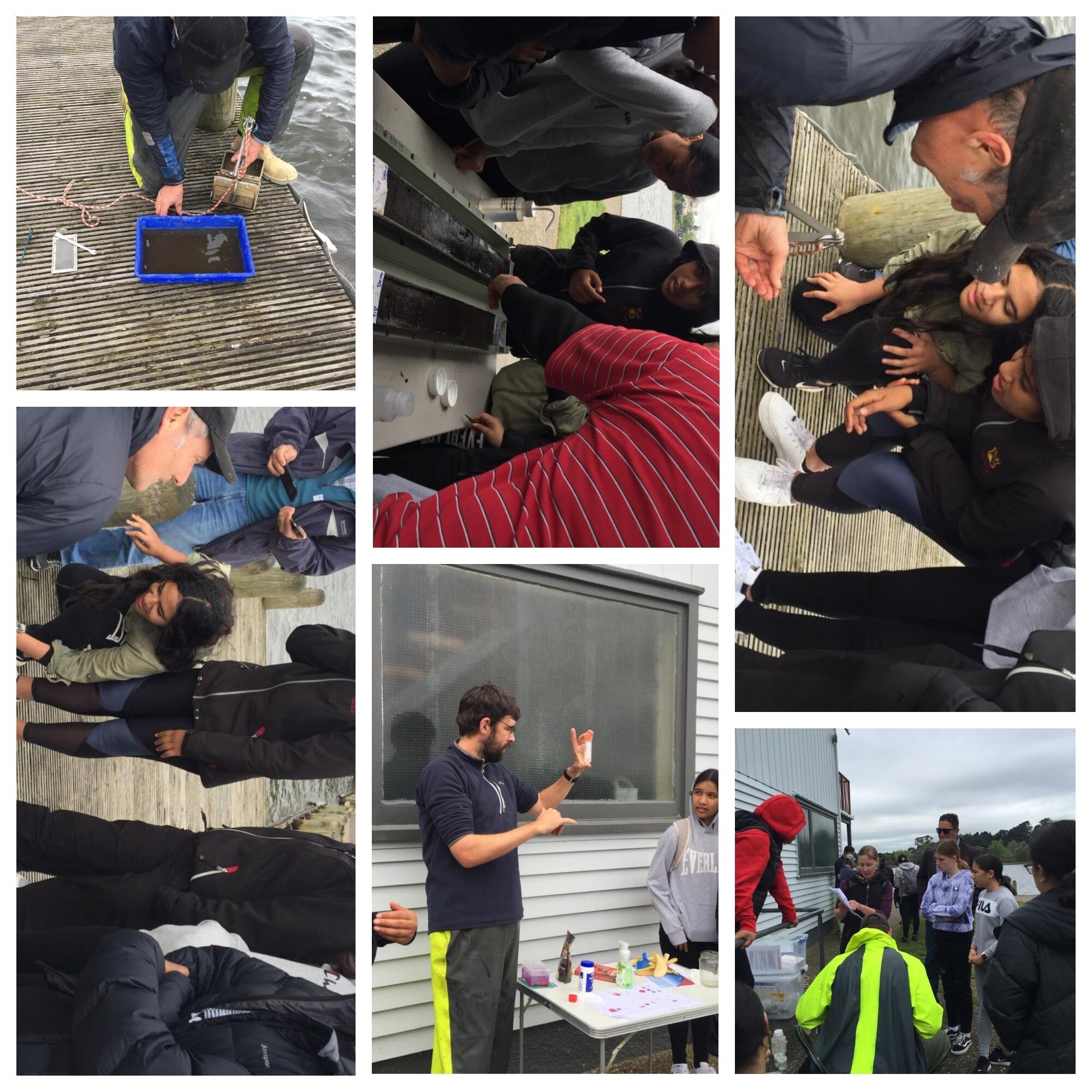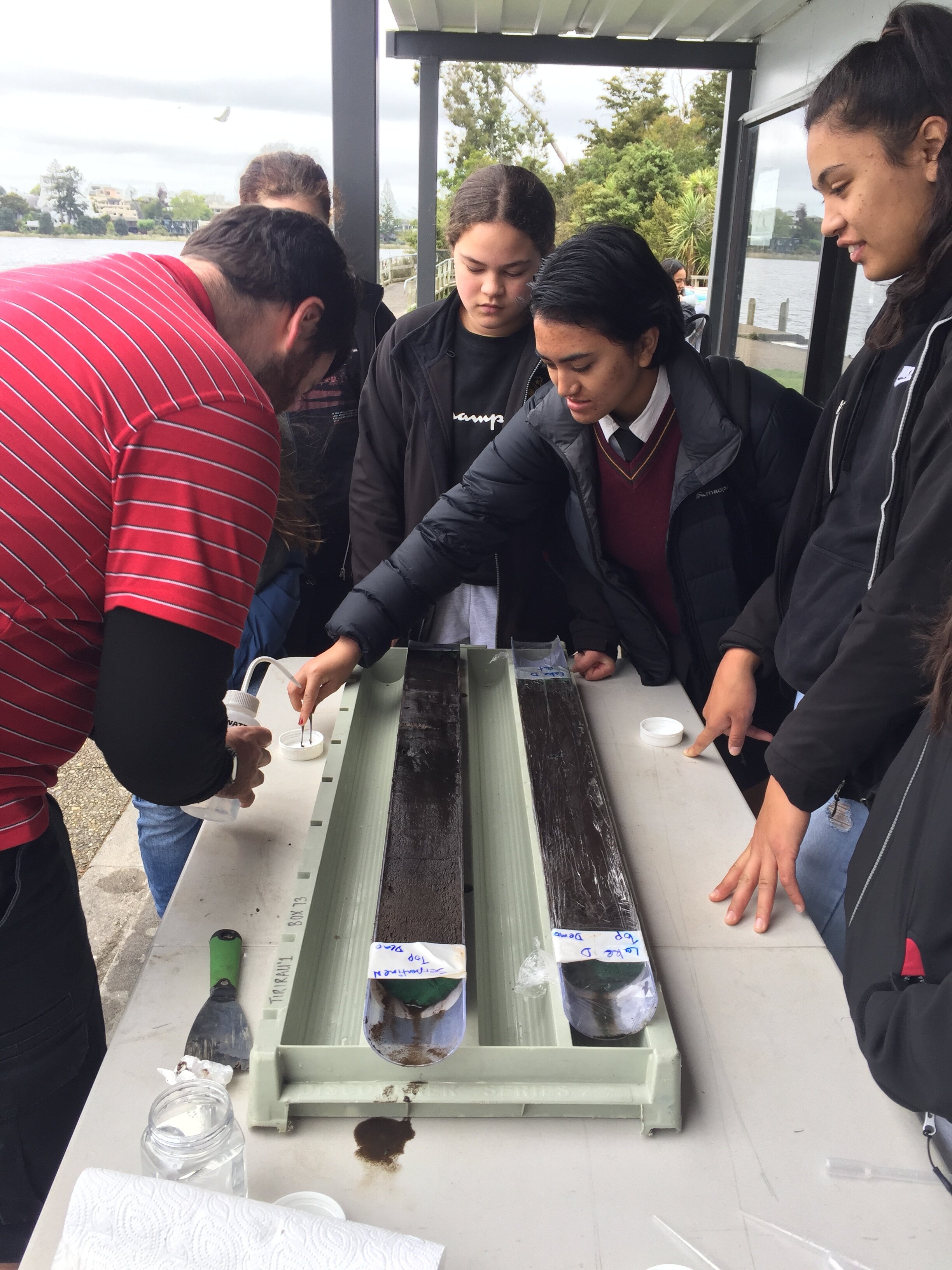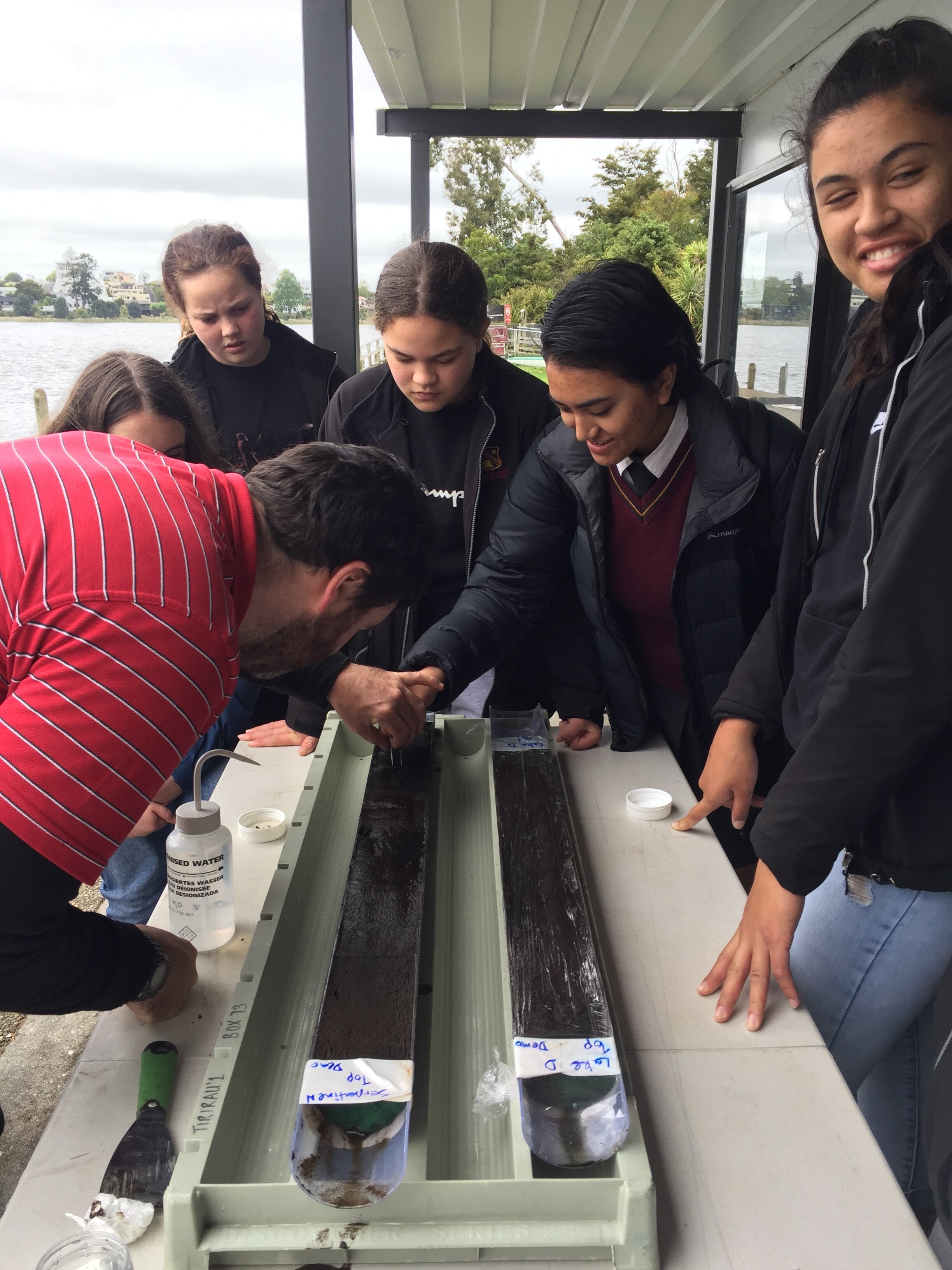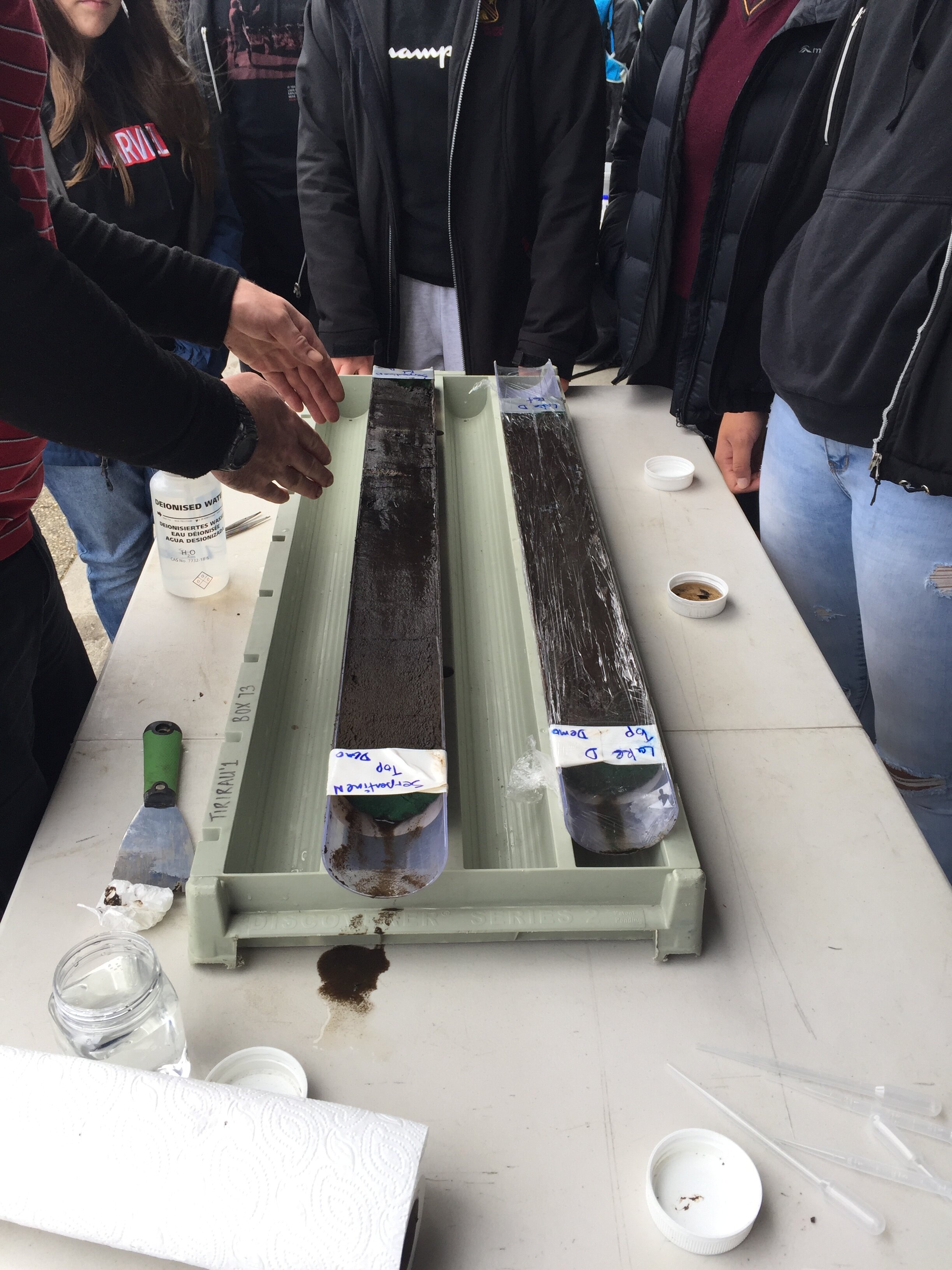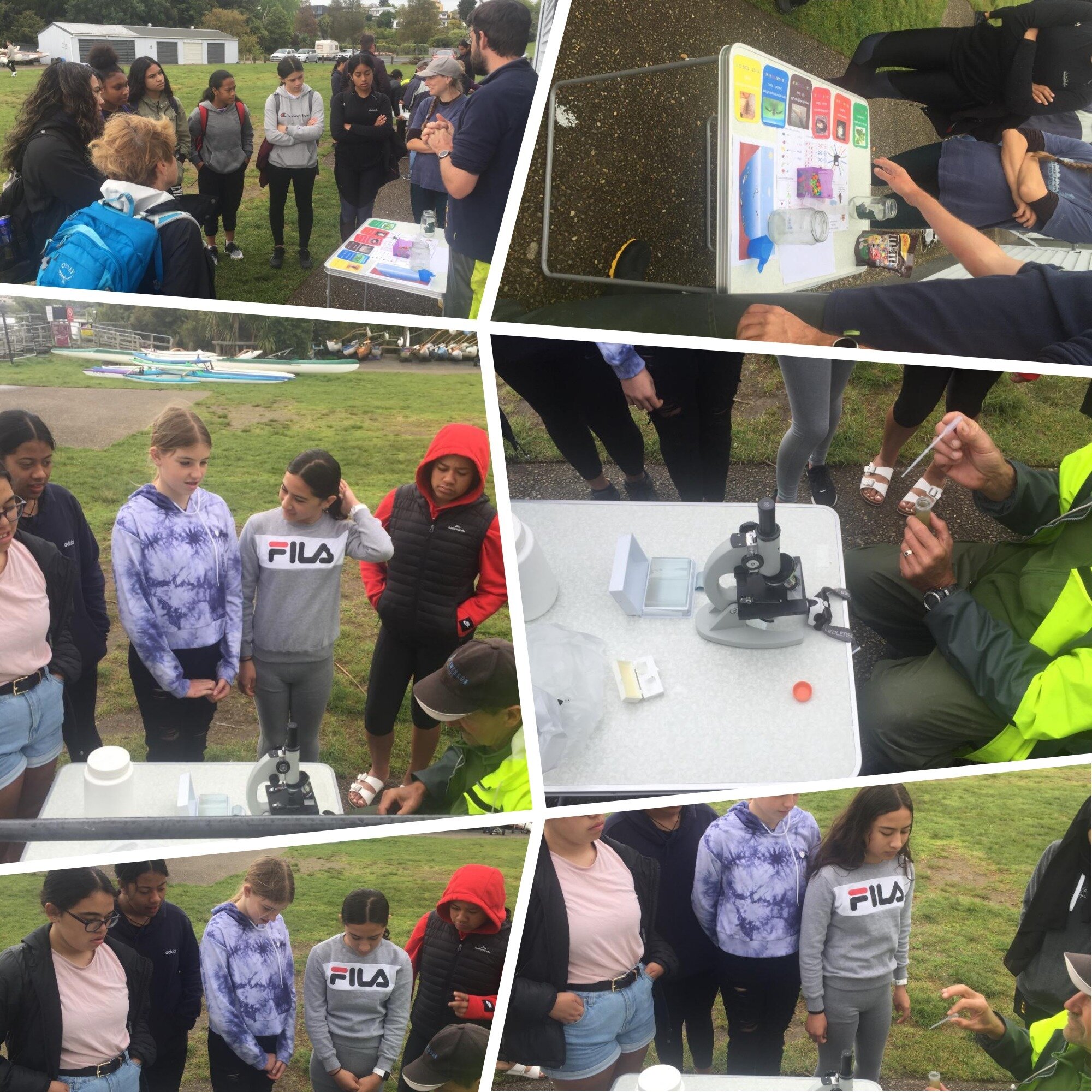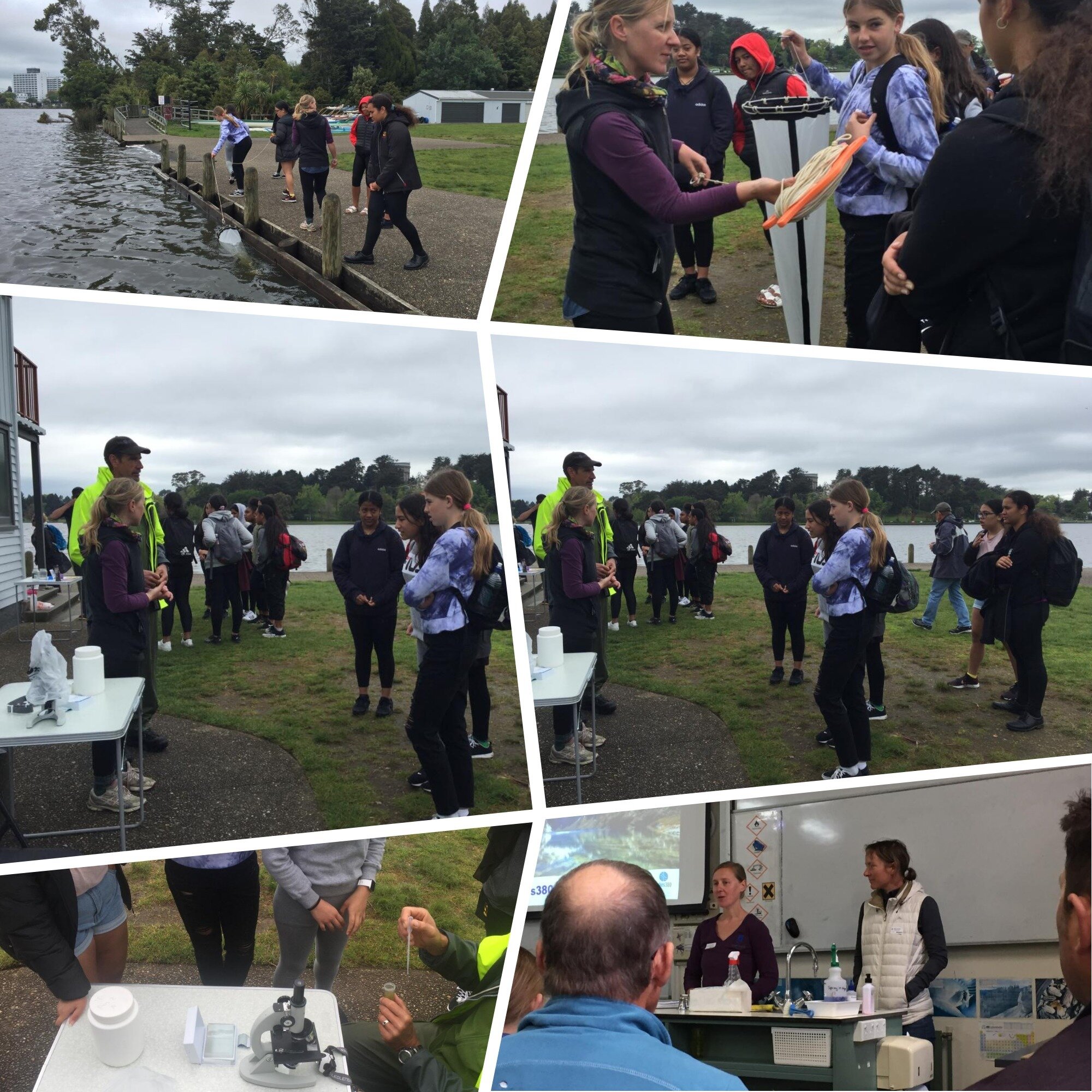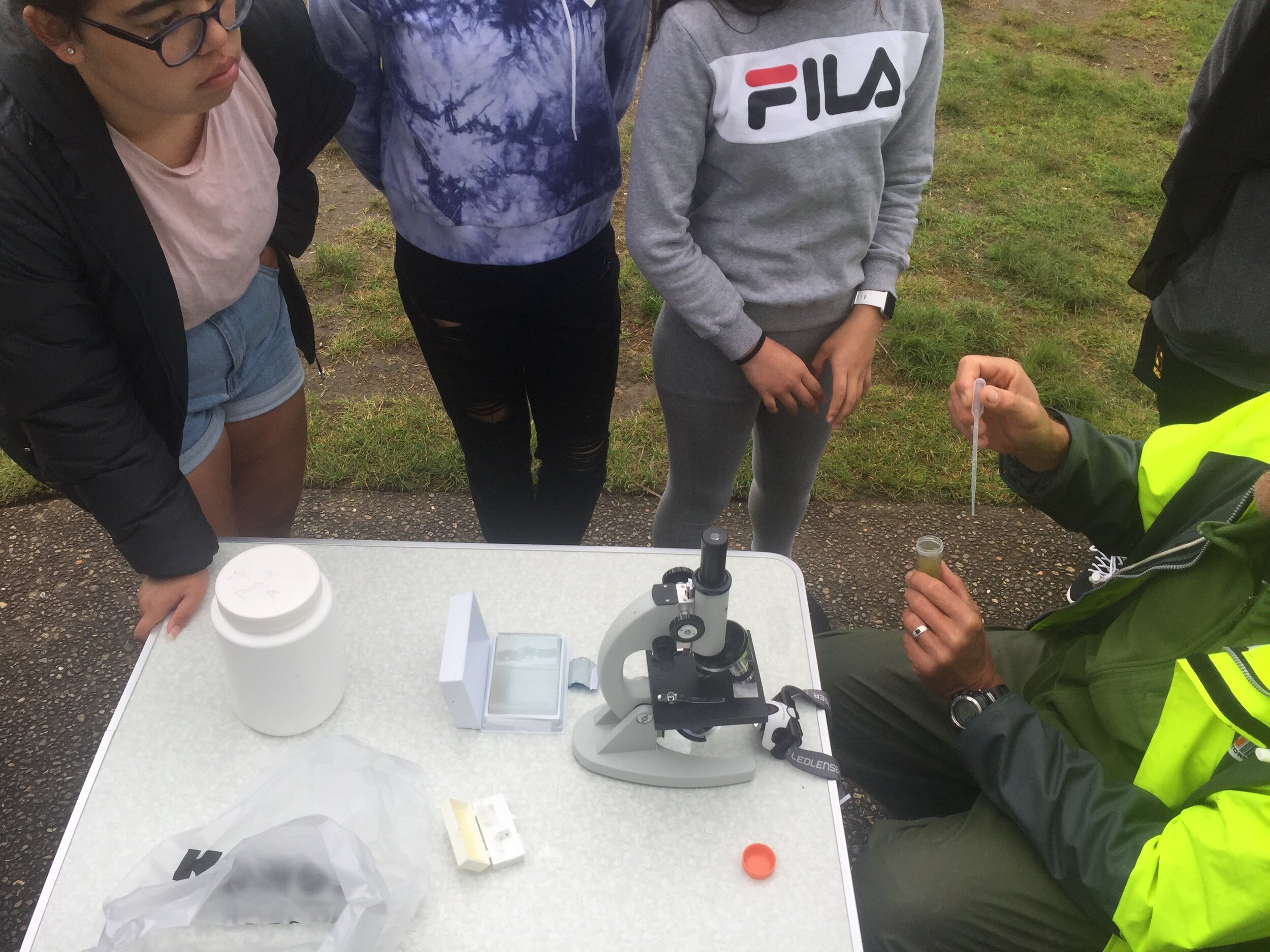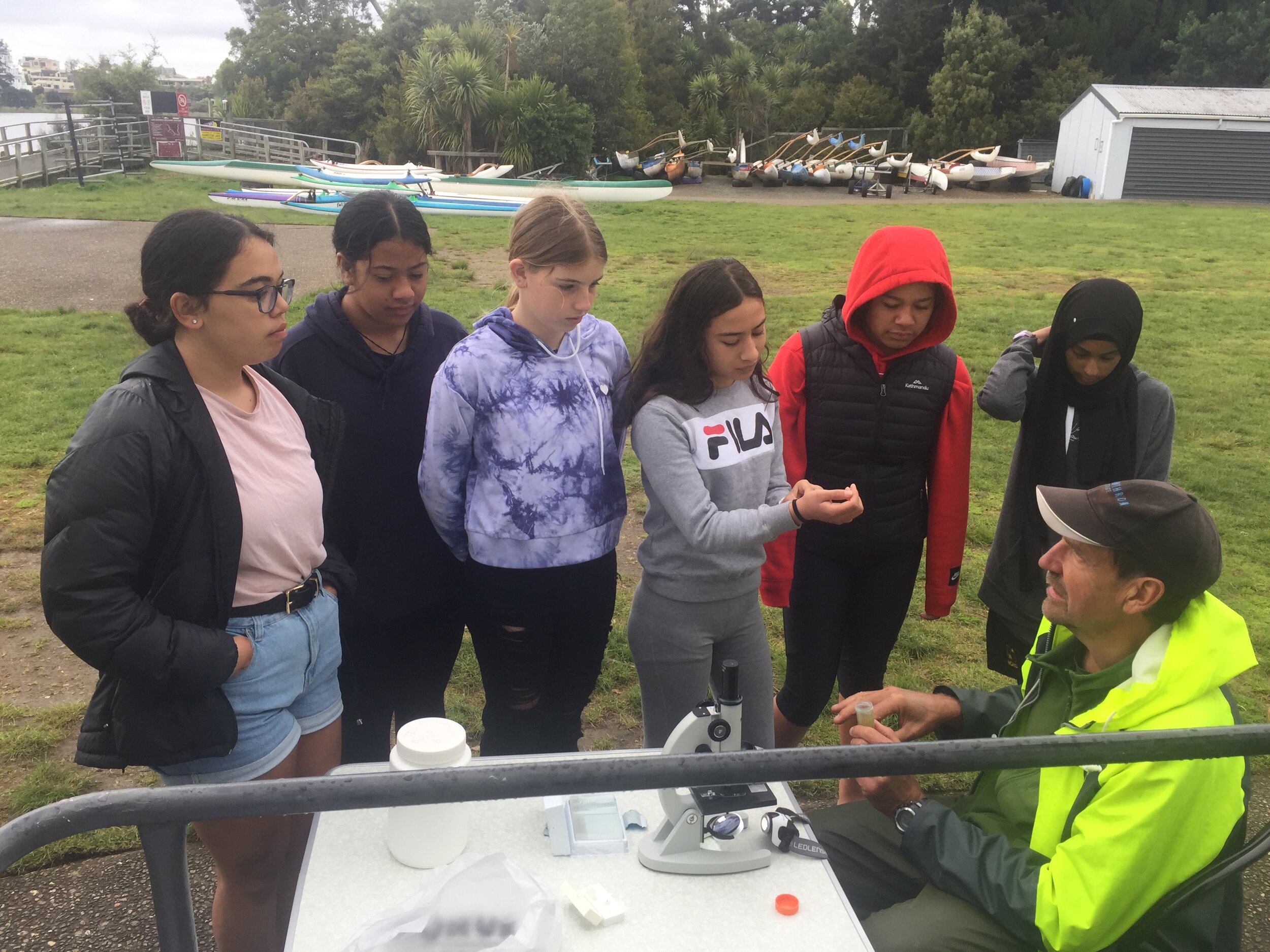Lake science Waikato
PTC Trust collaborated with the Lake 380 team to provide another workshop for our Waikato region. Our Hamilton girls were very enthused to meet the range of scientists working on Lake380 project. The project led by Dr Susie Wood and Dr Marcus Vandergoes from Cawthron Institute, GNS organisation and a range of scientists Andrew, Riki, Katie, Henry, David and Celeste collects samples from the lakes across NZ. Rangatahi learned about the three types of samples collected:
Surface sediment (lake bottom)
Sediment core
Water samples
They also were shown how these water and sediment samples can be used to determine the health of the lake, what organisms live in the lake and why the health of the lake has changed over time.
Scientists presented a range of updates and facts of the various lakes they have studied across NZ. This helped to set the context for their hands on experience. Next students were shown how to collect & identify cyanobacteria. They learnt that plankton nets are used by scientists to collect phytoplankton samples because they concentrate the algae and organisms in the water allowing biodiversity assessment to be undertaken.
Susie and Marcus also explained how many features from the sediment core can help to understand how a lake has changed from its natural baseline condition or how the lake ecosystem has responded over time to factors such as increased nutrients, contaminants, and introduced/invasive species, such as plants or fish.
The team also upskilled rangatahi in extraction of DNA and the ways in which this process provides information on lake conditions. DNA is contained in the cells of all organisms. In order to study it the DNA has to be released from these cells and made available for study. This requires the cells to be broken open. The DNA then has to be separated from the remnants of the cells and precipitated so that it can be isolated and used.
Students left intrigued and keen to share their learnings to wider whanau and community. It was a day of learning, curiousity and fun for all. Thank you to the Lake380 team for all the work being done studying our lakes.
Special thanks to our amazing team of experts, scientists, mentors and staff for enabling us to create such an exciting and rich day for all.

